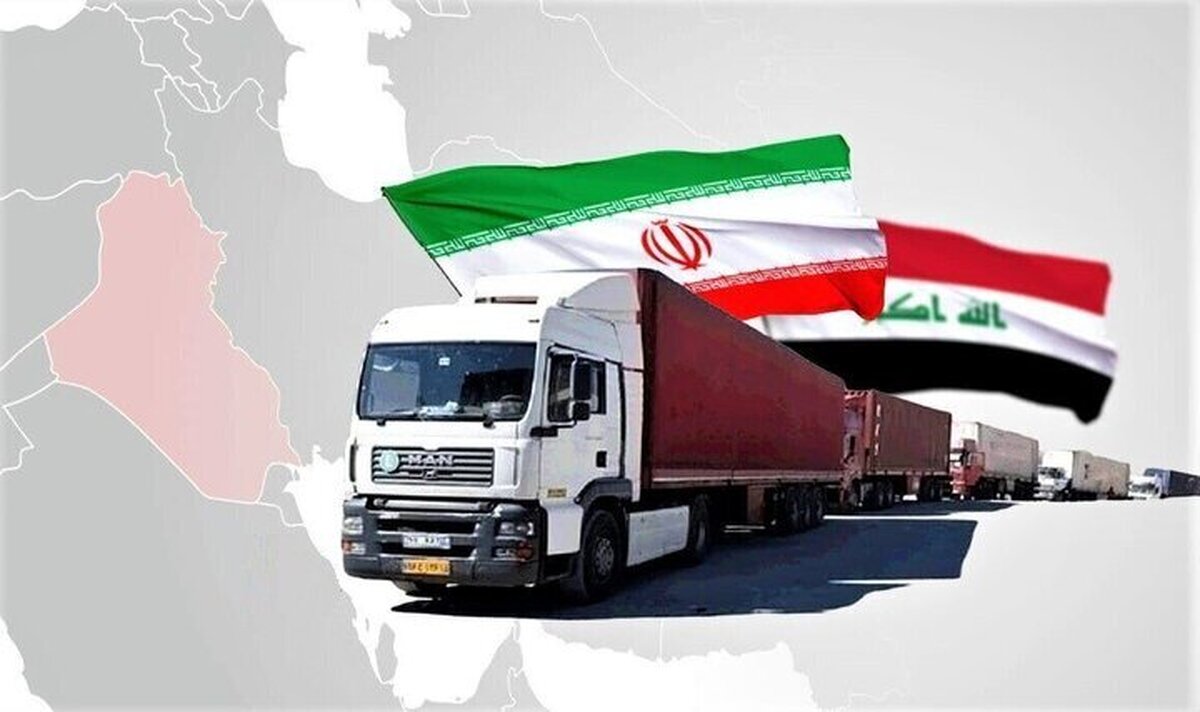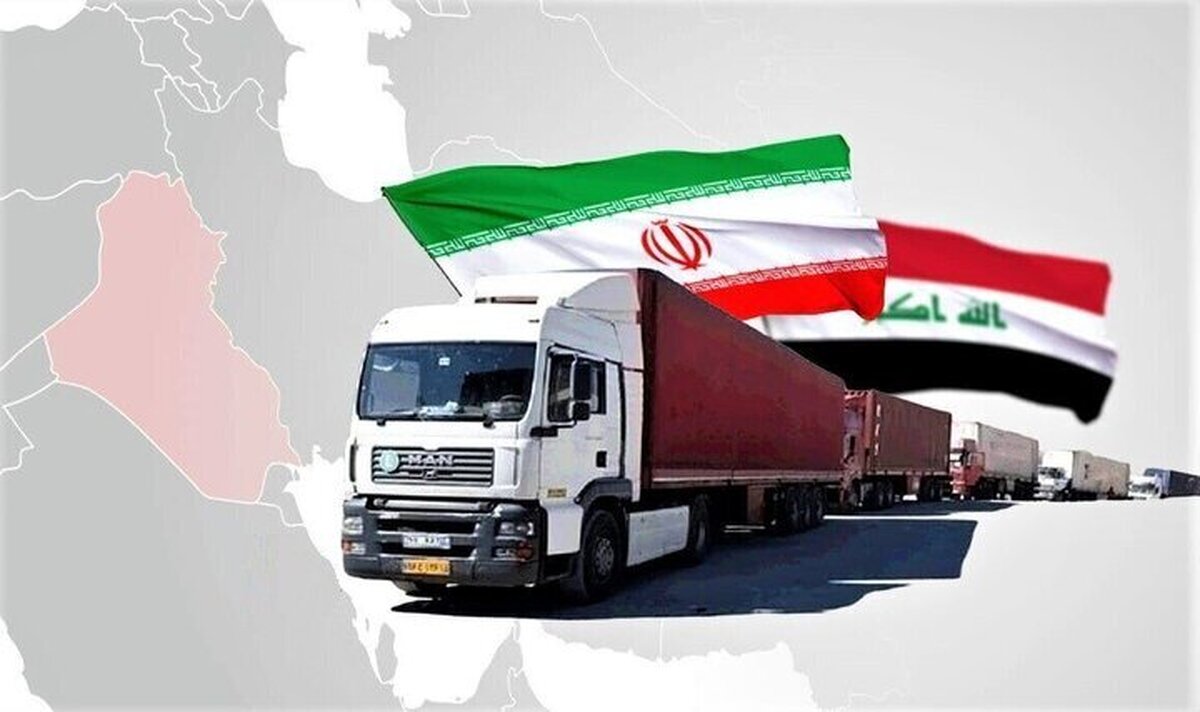
Iran, Iraq Vying for $20b Annual Trade Target
EghtesadOnline: Iran and Iraq plan to increase bilateral trade to $20 billion per annum within two years, says Iran’s Minister of Industries, Mining and Trade Reza Rahmani.
He made the statement after meeting his Iraqi counterpart Mohamed Hashim Al Ani in Tehran on Wednesday, IRNA reported.
The Iraqi official, who was accompanied by a delegation, was in Iran to discuss trade issues as well as President Hassan Rouhani’s upcoming visit to Iraq.
Several agreements will be signed between the two sides during the presidential visit, which is reportedly scheduled for March 11, according to Financial Tribune.
Iraqi Deputy Foreign Minister Nazar Khairallah described the upcoming visit as “a turning point” in the two countries’ relations after the formation of the new Iraqi government.
The president’s trip would be “historic” and “important” under the current regional circumstances, he said, adding that “as the government and people of Iraq, we are looking forward to this trip”.
Khairallah noted that the visit has been organized in line with the strategic view of Iraqi Prime Minister Adel Abdul Mahdi toward relations with Iran and can open up new horizons in bilateral ties.
“There are various capacities for cooperation … Expanding relations in such areas as economy and trade would benefit both nations and the region,” he said.
Referring to cultural commonalities and vast borders between the two neighboring countries, Rahmani said the ground is prepared to increase trade between the two sides.
Mohammad Reza Modoudi, caretaker of Trade Promotion Organization of Iran, and Nayereh Pirouz-Bakht, the head of the Institute of Standards and Industrial Research of Iran, were also present in the Wednesday meeting.
Major Trading Partners
Iran and Iraq are major trading partners.
According to Iran's commercial attaché in Baghdad, Nasser Behzad, Iran exported $8.3 billion worth of non-oil commodities to Iraq during the first 11 months of the Iranian year (March 21-Feb. 19) to register a rise of 54% and 45% in tonnage and value respectively compared with last year’s corresponding period.
The value of Iranian exports per ton to the neighbor is 1.1 times higher compared with the value of Iran’s exports to other countries, he told RNA.
“Iran’s 38 export consignments to Iraq were sent through the borders of Iraqi Kurdistan to different locations of Iraq,” he said.
Behzad emphasized that Iraq is Iran’s leading export destination among neighboring states, noting that 57% of Iran’s total exports are sent to Iraq, China and the UAE.
Iran mainly exports liquefied gas, hydrocarbons, mineral products, fresh or frozen tomatoes and evaporative coolers to Iraq.
Iran's Foreign Minister Mohammed Javad Zarif said Iran is willing to sign a deal with Iraq to drop customs tariffs between the two countries.
"The Islamic Republic of Iran is prepared to zero tariff rates between the two countries," Zarif said, addressing an economic forum in Iraq's southern city of Karbala in January.
Secretary-General of Iran-Iraq Chamber of Commerce Hamid Hosseini said as Iraq is beginning to rebuild infrastructure destroyed by terrorists, a number of its cities, especially Mosul and Kirkuk, can become a suitable market for Iranian construction materials and food products.
"Iraq has six million displaced citizens, four million of whom have returned after Daesh was defeated. Iranian products can be the best option to provide for these people. However, our share in the markets of Mosul and Kirkuk is relatively low at present and we need to increase it," he said.
Latest data show Iraqis accounted for the highest number of foreigners who visited Iran during the seven months to Oct. 22. A total of 1,926,310 Iraqis visited Iran in the period, followed by 989,836 Azerbaijani, 557,579 Afghans, 483,302 Turks and 159,728 Pakistanis. This is while the number of tourists from Iraq stood at 1,356,185 in the last Iranian year (March 2017-18) and 1,398,201 in the year before (March 2016-17).
Electricity, Gas Exports
Besides canned food and cars, Baghdad also buys 1,300 megawatts of electricity and 28 million cubic meters of natural gas daily from Iran to feed its power plants.
Despite the US sanctions, Iran is exporting $2 billion worth of gas and electricity to Iraq annually.
Zarif says the two countries' cooperation in the energy sector can grow, if Tehran and Baghdad decide not to allow Washington to impose restrictions on their trade.
Iraq has told the US it needs Iranian electricity and natural gas and can't find other sources as quickly as the US wants. It has asked for and received waivers for those imports. Iranian businesspeople say they're getting around the trade ban.
"Let me tell you one thing. No problem. We will find it, same as that we have done last sanction," said Reza Nateqi, the manager of Solico, a major Iranian food conglomerate, as reported by Washington-based media organization National Public Radio.
His company's products are available in almost every Baghdad supermarket.
A company official says they employ 1,500 Iraqis at the food processing plant and distribution centers. Nateqi said the sanctions will slow their expansion but won't stop it.
In a trading office in Erbil, investment banker Shwan Ibrahim Taha said his firm, Rabee Securities, deals only with the legal banking system. But he says, in Iraq, that system is overshadowed by the thriving business in informal money transfers.
"The unofficial banking system in Iraq is much bigger than the official banking system and is more capable, more agile," he said.
Prime Candidate to Rebuild Iraq
According to Zarif, 80 Iranian technical and engineering companies are active in Iraq with contracts worth $8 billion.
"The Islamic Republic of Iran enjoys very high capacities to rebuild the post-IS Iraq," he said, referring to the extensive damage to infrastructure caused by the self-styled Islamic State terrorist group.
Zarif stressed that Iranian firms should have a key role in rebuilding Iraq.
Iran has lent extensive support to Iraq in the fight against the IS group.
Now, as Iraq looks to rebuild, Zarif said Iranian firms should be favored because of his country's support and the complex logistics of partnering with western companies.
"If a European or American company comes to Iraq to do rebuilding activities, the costs of protecting their workers and staff in Iraq exceeds its contract for reconstruction," he said.
But an Iranian company could help rebuild at "low cost" and without security concerns, after having "stood alongside the Hashd", the volunteer Popular Mobilization Forces.
IS and the battle to defeat it ravaged swathes of Iraq and shattered its economy. Last year, Baghdad said its 10-year reconstruction plan will cost an estimated $88.2 billion.
Zarif met top officials in Baghdad and the Kurdish city of Erbil, and attended a trade summit in January.
The Iranian foreign minister commended Iraq's positive stance on promotion of ties with Iran, saying the two countries have managed to foil US bids to sabotage mutual relations.
"After (achieving) victory against the IS, some countries, including the US, have created problems in the way of the two countries' cooperation, but fortunately, they were defused thanks to the wisdom of the two countries' officials," he said.
Zarif praised the Iraqi government's positive stance on unilateral sanctions imposed by the US against the Iranian nation and noted that he planned to hold talks with senior officials of the Arab country about further expansion of cooperation.
Iran-Syria Road Connection via Iraq
Iran is planning to link up with Syria through Iraq via road.
A groundbreaking ceremony was attended by Iran's Roads and Urban Development Minister Mohammad Eslami last month to mark the beginning of the construction work on the first phase of Kermanshah-Bisotun-Homeyl Highway.
“Today the construction of 105 kilometers of this project has begun, in which 6 trillion rials ($50 million) will be invested. The highway will stretch over 141 kilometers upon completion and will cost a total of 15 trillion rials ($127 million),” the official was quoted as saying by the news portal of the ministry.
Eslami said the private sector will be mostly funding the construction of this highway, which is an important transit route in completing the east-west transport corridor, adding that the government is determined to extend its full support to private sector investors.
“Kermanshah-Bisotun-Homeyl will be a modern highway enjoying high levels of safety and speed. The project will reduce the current distance between Kermanshah and Homeyl by 30 kilometers, saving travel time and fuel consumption,” he said.
The minister said the project was a key measure for linking Iran with its Arab allies Iraq and Syria and would contribute to the country's economy at a time when it was beset by US sanctions, Newsweek reported.
Recalling his recent trip to the Syrian capital, Eslami said, "The issue of facilitating transit among Iran, Iraq and Syria was raised and Kermanshah-Bisotun-Homeyl road is considered a key part of this corridor."



